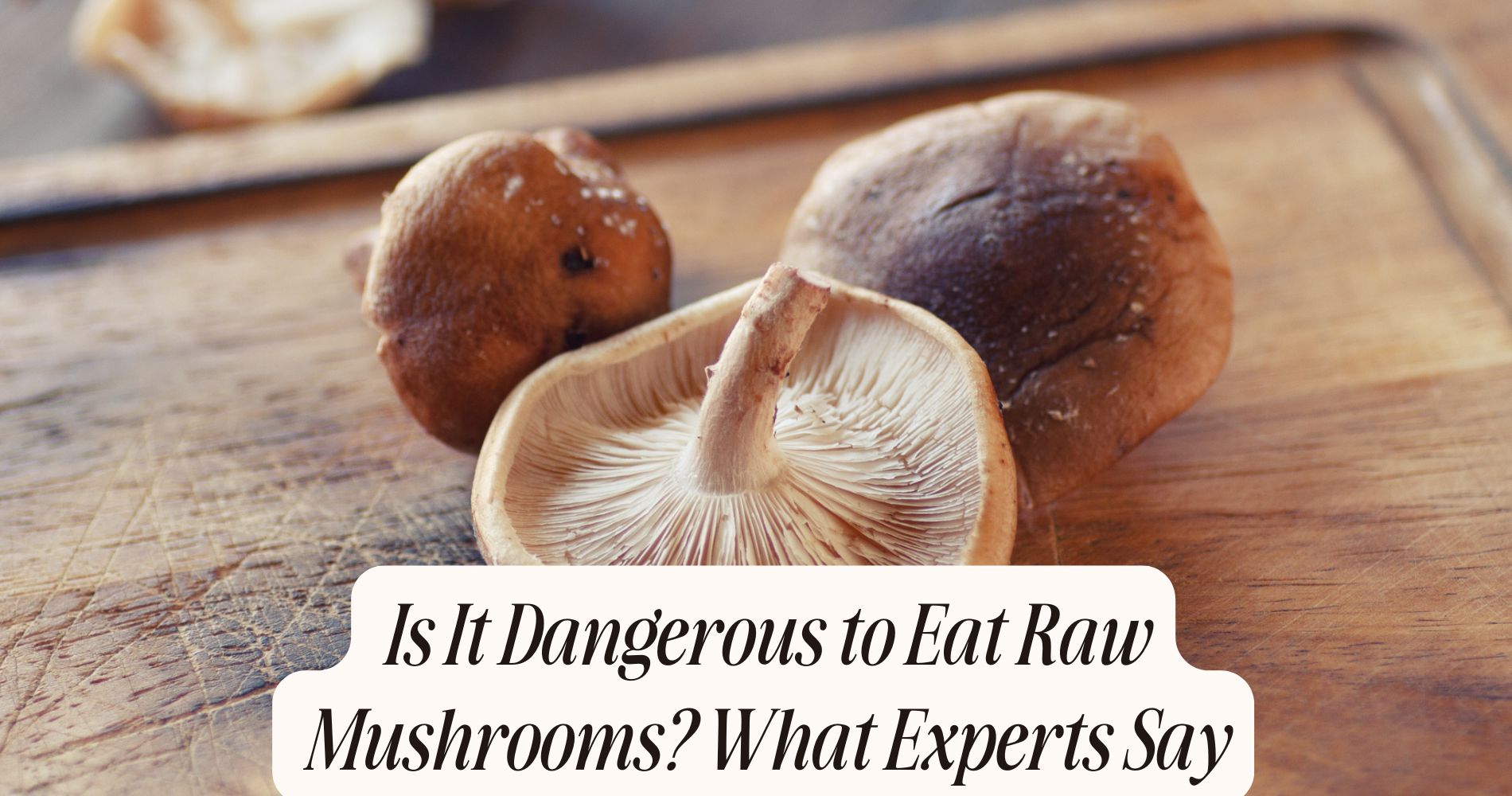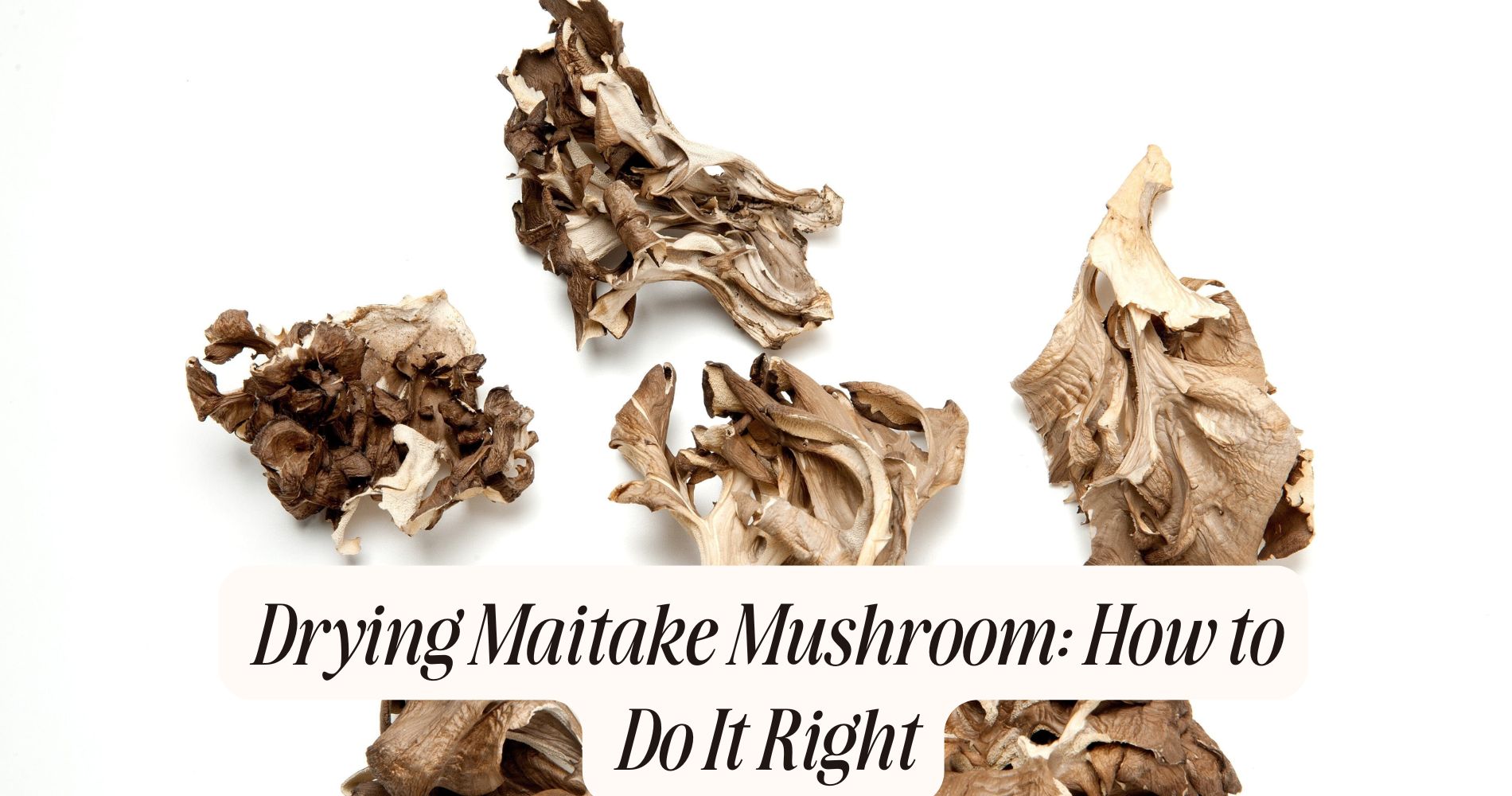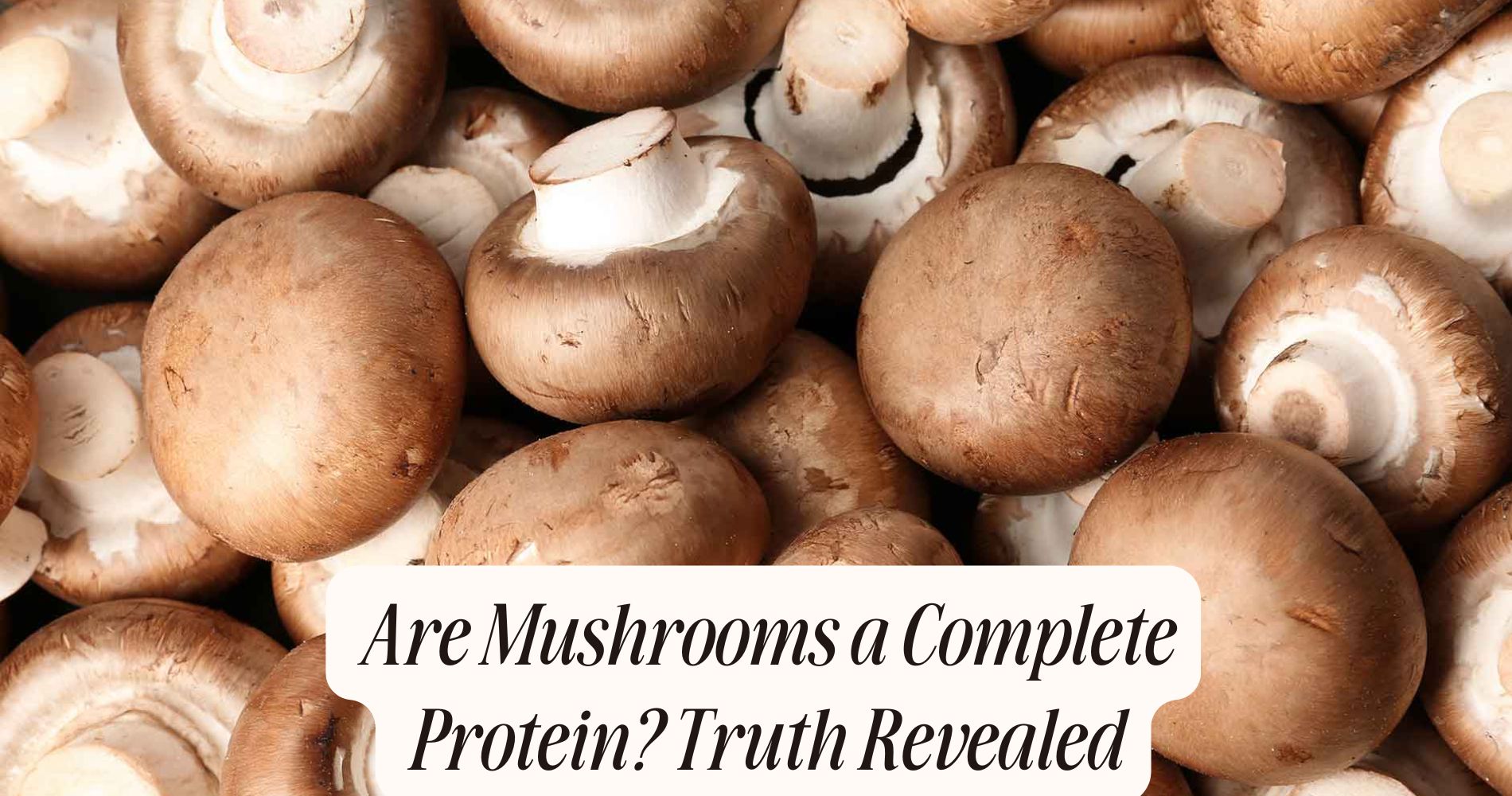
Is It Dangerous to Eat Raw Mushrooms? What Experts Say
Is it dangerous to eat raw mushrooms? Eating raw mushrooms can be both beneficial and risky. While they offer nutritional advantages—like being low in calories and high in antioxidants—you should be cautious. Some mushrooms contain toxins that can cause digestive issues or even serious health risks. Experts suggest sticking to safe varieties like button or cremini and sourcing them from reputable suppliers. Proper handling and storage are essential to minimize risks. Understanding more about their safety can help you make informed choices.
Understanding Raw Mushrooms: Types and Varieties
When you explore the world of raw mushrooms, you'll encounter a diverse array of types and varieties, each with its unique characteristics and potential effects on health. Understanding these edible varieties is vital for anyone looking to incorporate mushrooms into their diet.
Common types include button, shiitake, and portobello, each offering distinct culinary uses. For instance, button mushrooms are often used in salads, while shiitake can enhance stir-fries.

The nutritional profiles of these mushrooms vary; some are rich in antioxidants, while others provide essential vitamins and minerals. By identifying the specific mushroom types and their culinary applications, you can better appreciate their role in your meals, ensuring both safety and enjoyment in exploring raw mushrooms.
Nutritional Benefits of Eating Raw Mushrooms
Eating raw mushrooms can offer significant nutritional benefits.
They're packed with vitamins, provide powerful antioxidants, and are a low-calorie option for those looking to maintain a healthy diet.
High Vitamin Content
Although some might hesitate to include raw mushrooms in their diet, these fungi offer an impressive array of vitamins that can greatly enhance your nutritional intake.
Raw mushrooms are particularly rich in B vitamins, such as riboflavin and niacin, which play vital roles in energy metabolism and brain function. Their nutrient density allows you to benefit from essential vitamins without consuming excessive calories.
When you eat raw mushrooms, you also promote better vitamin absorption, as certain vitamins can degrade with cooking. By incorporating raw mushrooms into your meals, you not only diversify your diet but also boost your overall health.
Antioxidant Properties
Raw mushrooms are a powerful source of antioxidants, which play an essential role in protecting your body from oxidative stress.
These antioxidants, such as ergothioneine and selenium, help combat free radicals that can lead to cellular damage. By incorporating raw mushrooms into your diet, you can harness their antioxidant benefits, potentially reducing the risk of chronic diseases, including heart disease and cancer.
Studies suggest that the health impacts of these antioxidants extend beyond mere protection, as they may also enhance immune function and promote overall well-being.
Eating raw mushrooms regularly can be a simple yet effective way to boost your antioxidant intake and support your body’s natural defense mechanisms.
Embrace the power of raw mushrooms for better health.
Low Calorie Option
Mushrooms are a low-calorie powerhouse that can easily fit into any diet. With only about 15 calories per cup, they make an excellent choice for healthy snacking.
Rich in essential nutrients like vitamins D and B, along with minerals such as selenium and potassium, raw mushrooms provide numerous health benefits without adding excess calories. Their high water content and fiber also aid in digestion, promoting a feeling of fullness that can help curb cravings.

Incorporating raw mushrooms into salads, wraps, or as a crunchy snack can boost your nutrient intake while keeping calorie counts low. By choosing mushrooms, you’re not just enjoying a versatile ingredient; you’re also making a smart, health-conscious choice for your overall diet.
Common Concerns About Raw Mushroom Consumption
Many people wonder about the safety of consuming raw mushrooms, and it's a valid concern given the potential health risks. You might encounter raw mushroom myths suggesting they're completely safe.
However, it's vital to understand that not all mushrooms are created equal. Some varieties can cause digestive issues, while others may contain compounds that are more easily digested when cooked.
Eating raw mushrooms might also expose you to bacteria or fungi that cooking typically eliminates. It's important to differentiate between safe and unsafe types, as your health could be at risk.
Always research the specific mushroom variety you’re considering and consult with a healthcare professional if you have doubts about its safety in raw form.
Potential Toxins in Raw Mushrooms
How do potential toxins in certain mushrooms impact your decision to eat them raw?
The safety of consuming raw mushrooms hinges on your knowledge of wild mushroom safety and the specific species you’re considering. Many wild mushrooms contain harmful compounds that can lead to serious health issues, even if they appear edible.
For instance, some species may harbor mycotoxins that resist cooking. If you’re foraging, it’s vital to follow mushroom foraging guidelines meticulously. Misidentification is a common risk, as many toxic mushrooms closely resemble safe varieties.
Always err on the side of caution; when in doubt, cook your mushrooms to deactivate potential toxins and reduce health risks. This vigilance is essential for safe and enjoyable consumption of mushrooms.

Expert Opinions on Eating Raw Mushrooms
Experts often highlight the nutritional benefits of raw mushrooms, including vitamins and antioxidants that can support your health.
However, they also caution about potential toxicity risks associated with certain varieties.
This brings up the ongoing debate about the advantages of cooking mushrooms versus consuming them raw.
Nutritional Benefits Overview
Eating raw mushrooms can offer a range of nutritional benefits, making them a popular choice among health-conscious individuals.
They're low in calories yet packed with essential nutrients like vitamins D and B, as well as minerals such as selenium and copper. Incorporating raw mushrooms into your meals enhances not only their nutritional profile but also adds unique flavor profiles, enriching various culinary uses.
For instance, varieties like shiitake and portobello provide a meaty texture, while button mushrooms offer a mild taste that complements salads and dips. Their high antioxidant content may help support your immune system, while fiber can aid digestion.
Potential Toxicity Risks
While many enjoy the taste and health benefits of raw mushrooms, it’s crucial to be aware of the potential toxicity risks associated with certain varieties.
Some mushroom varieties, like the well-known Amanita species, harbor dangerous toxins that can lead to severe illness or even death. Even common types, such as the white button mushroom, contain low levels of toxins that may cause gastrointestinal discomfort in some individuals when consumed raw.
The toxicity levels can vary greatly, depending on the mushroom type and preparation method. Experts advise caution, particularly for those unfamiliar with wild mushrooms, as misidentification can have dire consequences.
Always prioritize safety by sourcing mushrooms from reputable suppliers and considering cooking to reduce potential risks.
Cooking vs. Raw Debate
When considering the benefits and risks of consuming raw mushrooms, opinions among nutritionists and food safety experts often diverge. Some argue that raw mushroom safety can be compromised due to potential toxins and bacteria present in uncooked varieties.
Cooking methods, such as sautéing or grilling, can effectively eliminate these risks, enhancing both flavor and digestibility.
On the flip side, proponents of raw mushrooms highlight their nutritional benefits, claiming that certain vitamins remain intact when uncooked. They suggest that specific types, like button or cremini mushrooms, are generally safe to eat raw in moderation.
Ultimately, it's crucial to weigh the potential risks against the nutritional advantages, ensuring you're well-informed before deciding how to enjoy mushrooms in your meals.
Safety Precautions for Eating Raw Mushrooms
Although raw mushrooms can be a nutritious addition to your diet, taking certain safety precautions is vital to minimize health risks.
First, verify you’re sourcing mushrooms from reputable suppliers to avoid toxic varieties. Stick to commonly consumed types like button, cremini, or shiitake, which are generally safe to eat raw.
Next, prioritize mushroom storage; keep them in a cool, dry place and consume them within a week of purchase to maintain freshness and prevent spoilage.
Always wash mushrooms thoroughly under running water to remove dirt and possible contaminants.
If you experience any adverse reactions after eating raw mushrooms, seek medical attention promptly.
Cooking vs. Raw: Which Is Healthier?
Cooking mushrooms can considerably alter their nutritional profile and digestibility, making it essential to weigh the benefits of both raw and cooked forms.
While raw mushrooms retain certain nutrients, like vitamin C, cooking methods—such as sautéing or grilling—can enhance the bioavailability of other nutrients, including antioxidants. Heat breaks down tough cell walls, making it easier for your body to absorb essential compounds.
Additionally, cooking can help eliminate potential toxins found in some mushrooms, ensuring safety. On the other hand, raw mushrooms may provide a satisfying crunch and distinct flavor.
Ultimately, the choice depends on your dietary goals; both forms offer unique health benefits that can complement a balanced diet. Consider incorporating a mix of both for peak nutrition.
Popular Dishes Featuring Raw Mushrooms
Several popular dishes showcase the unique flavors and textures of raw mushrooms, making them a delightful addition to many culinary creations.
One of the most enticing options is raw mushroom salads, where thinly sliced varieties like shiitake or oyster mushrooms provide a crunchy, earthy base. Tossing them with fresh herbs, citrus vinaigrette, and other vegetables elevates the dish.
Additionally, raw mushrooms serve as excellent sushi toppings, particularly in rolls featuring delicate flavors. Varieties such as enoki or maitake add unique textures and umami notes, enhancing the overall experience.

These dishes not only highlight the versatility of raw mushrooms but also invite you to explore their distinct characteristics, appealing to both adventurous eaters and those seeking fresh, healthy options.
Tips for Enjoying Raw Mushrooms Safely
When considering the enjoyment of raw mushrooms, it’s essential to prioritize safety to fully appreciate their flavors and health benefits.
Start by sourcing mushrooms from reputable suppliers or local farmers' markets, ensuring they follow safe growing practices. Avoid foraging wild mushrooms unless you're an expert, as some species can be toxic.
Once you’ve sourced your mushrooms, employ effective washing techniques. Rinse them under cold water to remove dirt and contaminants, but avoid soaking, as mushrooms can absorb excess moisture.
Use a soft brush or cloth for stubborn dirt without damaging the delicate surface. Finally, store raw mushrooms in a paper bag in the fridge, keeping them dry and fresh.
Following these tips will help you enjoy raw mushrooms safely.
Enjoy Mushroom Benefits Safely with SUPER MUSHROOM GUMMIES
Looking for a convenient and safe way to enjoy the benefits of mushrooms without the concerns of eating them raw? Well Gummies' SUPER MUSHROOM GUMMIES are the perfect solution! Packed with 10 types of functional mushrooms, these vegan gummies fuel your brain, enhance focus, and support immune health naturally. With a delicious wild berry flavor, they taste just like your favorite candy—without the jitters or crash. Energize your body and stay sharp all day long with SUPER MUSHROOM GUMMIES, a safe and tasty alternative!
Frequently Asked Questions
Can Eating Raw Mushrooms Cause Allergic Reactions?
Yes, eating raw mushrooms can trigger allergic reactions in some individuals. Raw mushroom allergies may lead to mushroom sensitivity symptoms like itching, swelling, or gastrointestinal issues. It's important to monitor your reactions when consuming them.
How Should I Store Raw Mushrooms for Freshness?
To keep raw mushrooms fresh, use proper mushroom storage techniques. Store them in a paper bag in the fridge for ideal refrigeration methods, avoiding plastic, which traps moisture and leads to quicker spoilage.
Are There Specific Mushrooms That Are Safer to Eat Raw?
Yes, specific varieties like shiitake and enoki mushrooms are generally safer to eat raw. They offer nutritional benefits such as vitamins and antioxidants, but always verify they’re fresh and sourced from reputable suppliers for safety.
How Do I Wash Raw Mushrooms Properly Before Eating?
To wash raw mushrooms properly, use a damp cloth or soft brush to gently clean dirt. For delicate varieties like chanterelles, avoid soaking them. Implementing these cleaning techniques guarantees your mushrooms remain flavorful and safe to enjoy.
Can Raw Mushrooms Interact With Medications?
Raw mushrooms can potentially interact with certain medications, affecting their efficacy. It's essential to consult your healthcare provider about any specific concerns regarding medication interactions, especially if you're incorporating raw mushrooms into your diet regularly.
Conclusion
In summary, while eating raw mushrooms can offer nutritional benefits, it's important to be cautious. Certain varieties may contain toxins that pose health risks, so identifying safe types is vital. Experts generally advise cooking mushrooms to enhance safety and digestibility. If you choose to enjoy them raw, confirm they are fresh and sourced from reliable suppliers. By following safety precautions, you can savor the unique flavors of raw mushrooms while minimizing potential dangers. Stay informed and make smart choices!




